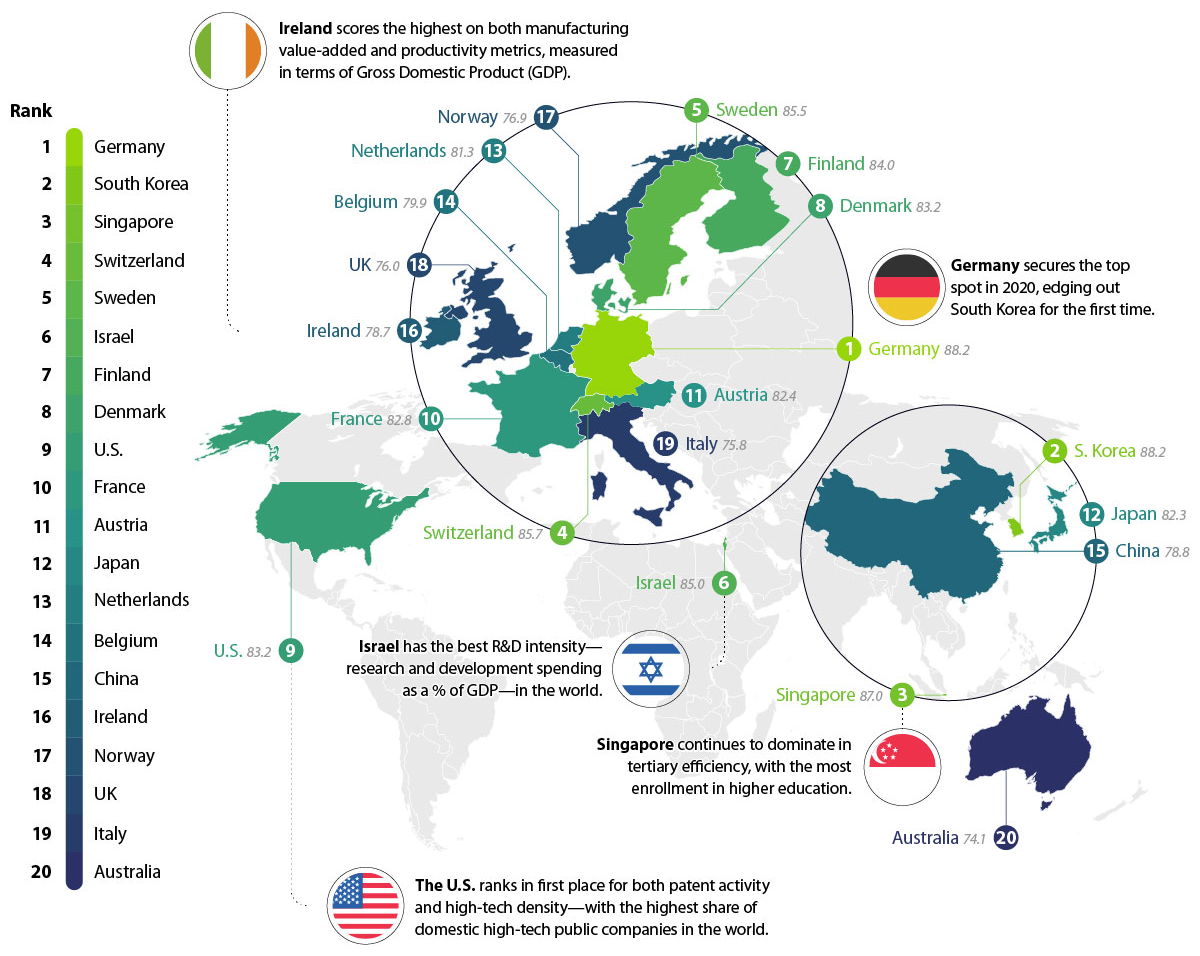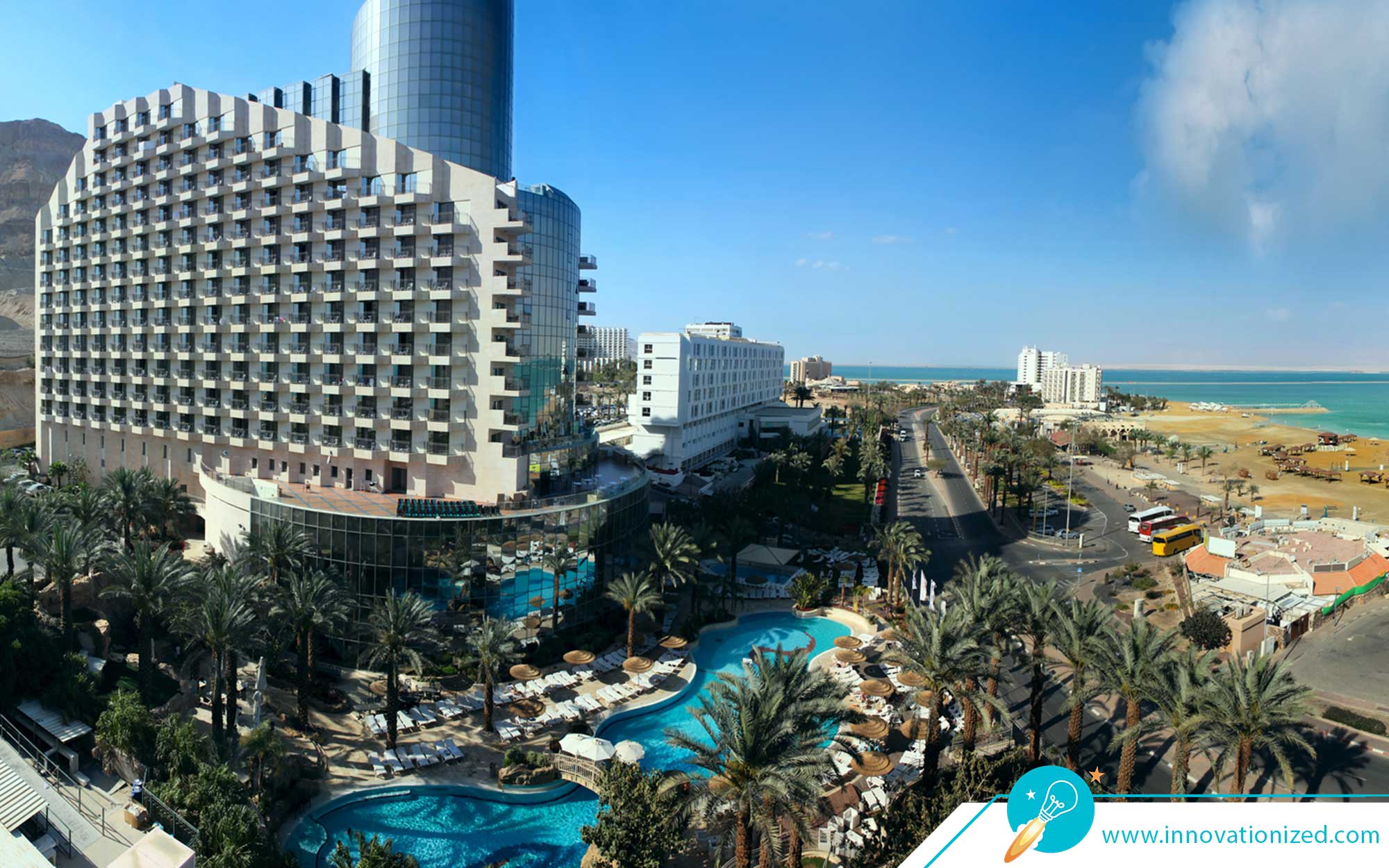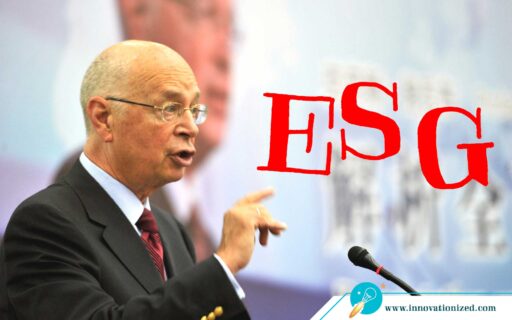When it comes to innovation in the Middle East, one country stands alone. The question is why?
Which country is responsible for all the inventions below?
10 Life-Saving & Life-Enhancing Inventions
- Waze: A GPS navigation software app that provides turn-by-turn navigation information and user-submitted travel times and route details.
- USB Flash Drive: The USB flash drive revolutionized data storage and transfer.
- PillCam: This swallowable camera is used for detecting and diagnosing digestive diseases.
- ReWalk Exoskeleton: A wearable robotic exoskeleton that provides powered hip and knee motion to enable individuals with spinal cord injury to stand upright, walk, and turn.
- Iron Dome Defense System: A mobile all-weather air defense system designed to intercept and destroy short-range rockets and artillery shells.
- Mobileye: An advanced driver-assistance systems (ADAS) providing warnings for collision prevention and mitigation.
- Watergen: A system that extracts humidity from the air and turns it into clean drinking water.
- Cherry Tomatoes: The world’s first long shelf-life commercial cherry tomatoes.
- Solar Window: Pythagoras Solar developed the first solar window which can generate electricity.
- Beresheet Lunar Lander: The world’s first privately-funded mission to the moon.
The answer is Israel.
People all over the world use many of these inventions every day. Waze and the USB Flash Drive are particularly widespread.
Despite its tiny size, and many challenges of being surrounded by largely hostile nations bent on destroying it, Israel has been recognized for decades, as one of the top 20 most innovative countries in the world.
In 2004 it ranked 16th in the world, and above many major Western nations like Canada. In 2019 it ranked 5th, above some of the most innovative countries in the world, including Singapore and the US. And in 2020, Israel ranked #1 in research and development (R&D) intensity (percentage of GDP spending on R&D). [1]

Many Israeli companies are so successful, they are household names around the world. For example, Fivrr, SodaStream, Waze, and Wix. Others are less well-known by the public, but major powerhouses in their industry, like Teva Pharmaceutical Industries, the largest generic drug manufacturer in the world, and Tower Semiconductor Ltd. Other much smaller companies are even less well-known, but they are highly innovative and considered leaders in their field, for example Mobileye, the Israeli company developing autonomous driving technologies and advanced driver-assistance systems.
This level of innovation is especially astounding when you consider that Israel has little in the way of natural resources, unlike its Arab neighbors who are rich in oil. It is also a desert, yet it exports many agricultural products, including cucumbers, tomatoes, and watermelons, and zucchini. [2]
Israel has also built advanced desalination and water treatment plants that have turned it from a drought-ridden country, into one that has a surplus of water. In fact, Israelis enjoy fresh water at half the cost of a consumer in Los Angeles. [2]
Scientists at Israel’s Zuckerberg Institute for Water Research (a faculty at Ben-Gurion University of the Negev), have developed new techniques in desalination, drip irrigation, and water treatment. They have also developed technology that benefits other countries, such as well systems for African villages and biological digesters that can halve the water usage in many homes. [3]
Elan Journo notes in his book, What Justice Demands, that Israelis are highly productive in a range of areas, including economically, technologically, and scientifically. For example, Israel publishes about 1,402 articles per million citizens.
“Israel’s output of scientific and technical articles towers above other major countries in the Middle East, such as Iran (426), Saudi Arabia (255), and Egypt (102). By this metric, Israel far surpasses all its neighbors and belongs in the same league as the world’s leaders in science and technology.” [4]
In 2018, Israel was ranked third in countries with the most companies on the NASDAQ. [4]
Today, Israel’s per capita GDP is $58,273 (nominal, 2023) (IMF). Israel ranks 22nd in the Human Development Index (comprising life expectancy, education, and per capita income indicators), with expected GDP growth of 3% or more over the next three years, according to the International Monetary Fund (IMF) and the World Economic Outlook Database Oct 2022.
What accounts for this outsized innovative performance of this tiny nation of less than ten million people?
What is the Secret to Israel’s Success?
“Innovation is the child of freedom and the parent of prosperity.” -Matt Ridley
As Matt Ridley and others have pointed out, innovation thrives in freedom. Wherever and whenever freedom reigns, innovation gushes forth. And wherever and whenever authoritarianism gains a choke hold, stagnation and misery follows.
So, where does Israel stand on this axis of freedom versus authoritarianism?
Israel’s founding document, the Declaration of the Establishment of Israel, is clear on the nature of the state of Israel and its objectives:
THE STATE OF ISRAEL … will foster the development of the country for the benefit of all its inhabitants; it will be based on freedom, justice and peace as envisaged by the prophets of Israel; it will ensure complete equality of social and political rights to all its inhabitants irrespective of religion, race or sex; it will guarantee freedom of religion, conscience, language, education and culture; it will safeguard the Holy Places of all religions; and it will be faithful to the principles of the Charter of the United Nations.
While far from perfect, Israel has largely achieved its aim of building a society that is free, in which its citizens can think, learn, produce, and prosper.
The secret to Israel’s success can be summed up as its respect for the mind.
“If you are going to the Middle East to look for oil, you can skip Israel. If you are looking for brains, look no further. Israel has shown that it has a disproportionate amount of brains and energy.” -Warren Buffet
While Israel is a religious nation, Judaism is does not emphasize blind faith to the extent that Islam and Christianity do, and thus Israel does not suffer from the stagnation that accompanies cultures of unadulterated faith, for example, Islamic nations in the Middle East today or Christianity in Medieval Europe.
Education and knowledge. Judaism, and the Jewish culture in general, place a high value on education and learning.
According to an OECD report, and reported at Erudera, Israel ranks as the fifth most educated nation in the world, beating the United States (6th) and the United Kingdom (8th). Education is a crucial component in exploiting science for technological innovation.
This leads to a highly educated and skilled workforce. Israel has the highest proportion of engineers in the world, 135 per 10,000 persons, versus 85 per 10,000 in the US. (Some of this is due to immigration from the Soviet Union after the collapse of communism in 1989.) [6]
Productivity. Since nothing gets accomplished without physical activity, productivity is important too. And here Judaism and the Jewish culture celebrates labor.
“Great is labor for it honors the person who does it” (Ned. 49b)
Investment in research and development. Israelis value research and development (R&D) and invest heavily in it. In fact, Israel spends more than any other nation in the world on R&D, it spent 4.3% of GDP on R&D in 2018 [6], and again ranked number for R&D intensity in 2020. [1]
Risk-taking. Successful innovation requires a lot of experimentation, risk, and failure. Israelis have a history that has hardened them and made them resilient. Dan Senor and Saul Singer highlight this resilience and risk-taking in their 2009 book Start-Up Nation.
But the Real Reason for Israel’s Success Remains…
Now, while all of these are contributing factors, none of them can be active and efficacious unless there is freedom. The freedom and the protection of property rights to act on these skills, develop innovative products and services, and then reap the rewards of all that hard work.
Freedom and the rule of law. Freedom, property rights, and a well-established legal framework to protect individual rights, are foundational, and enable other contributing factors, such as education, work ethic, and investment, to fuel Israel’s success. And while far from perfect, Israel is relatively free, and comparable to other Western nations such as the United States, the United Kingdom, and France.
As mentioned earlier, Israel’s founding declaration says the state, “will ensure complete equality of social and political rights to all its inhabitants irrespective of religion, race or sex…”
Israel’s stated purpose alone makes it stand out as a uniquely free country in the Middle East. And Israel has been relatively successful in achieving its goal of protecting individual rights and freedom. It protects free speech and a free press. It has an independent judiciary that often rules against the government. Arabs can live and work in Israel, and many have businesses. There have been Arabs in Israel’s parliament, the Knesset, since its founding. There are currently 10 Arab members. [7]
Where in the Middle East are the rights of individuals protected? The rights of atheists, Jews, homosexuals, women? Other than Israel, nowhere.
Israel is an oasis of freedom in a desert of oppression and stagnation. That is what explains why it is highly innovative and prosperous.
As Matt Ridley sums up so well, and it is worth repeating:
“Innovation is the child of freedom and the parent of prosperity.”
In the Middle East, Israel alone is a shining example of the truth of that observation. Despite its isolation and harsh geographical and political environment, Israel is an oasis of innovation and prosperity, because it is free.
References & Resources
- Ghosh, Iman. “Where Are the World’s Most Innovative Economies?” Visual Capitalist. February 28, 2020. https://www.visualcapitalist.com/world-most-innovative-economies/. Originally sourced from Bloomberg’s Innovation Index.
- Bailey, Ronald; Tupy, Marian L. Ten Global Trends Every Smart Person Should Know (p. 115). Cato Institute.
- Rowan Jacobsen, “Israel Proves the Desalination Era Is Here,” Ensia, July 29, 2016, reprinted in Scientific American, https://www.scientificamerican.com/article/israel-proves-the-desalination-era-is-here/. (Quoted in Bailey and Tupy.)
- Journo, Elan. 2018. What Justice Demands: America and the Israeli-Palestinian Conflict. New York: Post Hill Press. Journo explores other metrics of technological advancement, progress and well-being, such as the number of Nobel prizes, life expectancy at birth, and infant mortality rate; all of which place Israel among advanced Western countries and head and shoulders above its Middle East neighbors.
- Williams, Steven. “How Israel Became the Start-Up Nation,” Seeking Alpha, February 27, 2018. https://seekingalpha.com/article/4151094-how-israel-became-startup-nation-3rd-companies-on-nasdaq
- Tupy, Marian L.; Pooley, Gale L. Superabundance: The Story of Population Growth, Innovation, and Human Flourishing on an Infinitely Bountiful Planet (p. 414). Cato Institute.
- “List of Arab Members of the Knesset.” Wikipedia. November 16, 2023. URL: https://en.wikipedia.org/wiki/List_of_Arab_members_of_the_Knesset.





